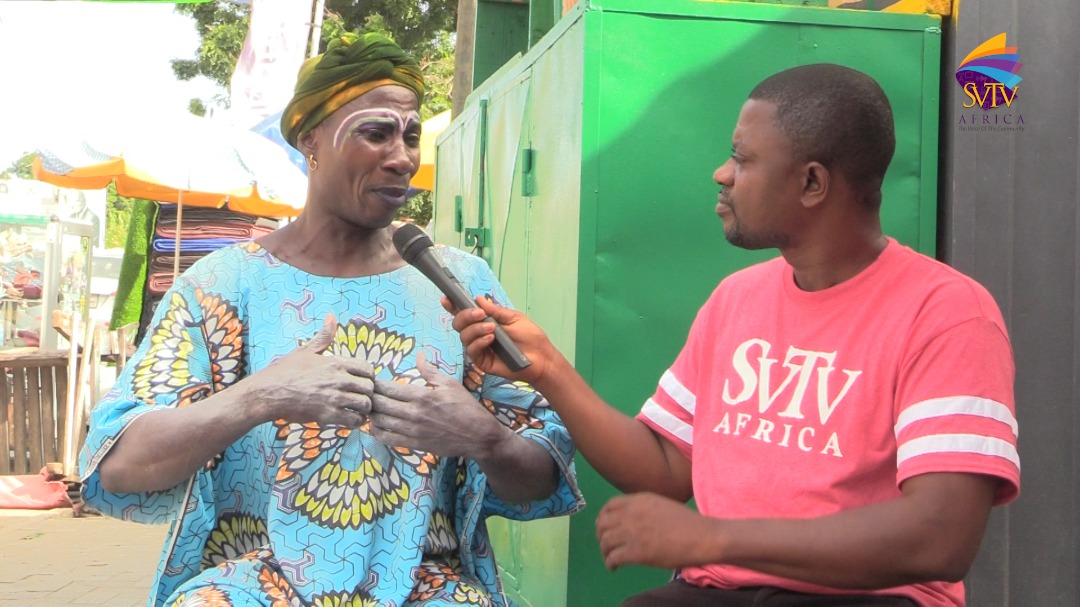Atta Brew, a Ghanaian now living in Germany, shared his emotional story during an interview with DJ Nyaami on SVTV Africa’s Daily Hustle Worldwide show. He explained that although he wasn’t fond of “Lumba” songs while in Ghana, he grew to like them after traveling abroad. Despite his move, he admitted that he often feels sad living in Germany.
Atta left Ghana in 2023. Prior to that, he had worked in the Ghana security service from 2009 to 2023, dedicating 16 years of his life to the job, which he joined at age 24. His father passed away when he was young, and his mother urged him and his siblings to be cautious in life. While in Ghana, he managed to build his own house and was content with his life. He emphasized that having vision and purpose helps people progress faster.
He married a woman who was part of a two-ring ceremony and also worked in security. They had three children together—two girls and one boy. They lived in their home in Ghana, and things were going well until his wife expressed a strong desire to travel abroad, particularly to the UK for a care job that promised £8,000. She eventually became serious about it, even though their children were attending some of the best schools in Sunyani.
Atta revealed that his wife grew envious after a friend who had recently given birth managed to travel to the UK. She became desperate to leave, which caused tension in their marriage. Eventually, she divorced him and was granted custody of the children. However, she later left the children behind and traveled without his knowledge. Her family even blocked him from reaching her.
He regrets leaving Ghana. In Germany, he now cleans toilets and does menial jobs just to survive. At one point, he was asked to send money to his ex-wife’s father to care for the children, which pushed him to travel abroad. Atta emphasized that he never paid anyone for the visa. Instead, he bought data, researched online, applied for documents, and asked questions. Eventually, with the help of a sponsorship and some borrowed funds to meet bank statement requirements, he secured a visa to Germany.
Back in Ghana, Atta had a cement and water business, rented out wheelbarrows, and was financially stable. He believes he would have been better off had he stayed in Ghana. After moving to Germany, he brought his brother, his brother’s wife, and their children into his home. He also took a loan to buy a car for his ex-wife before she left.
After their separation, he met another woman at a funeral who offered to take care of his children in Kumasi. A 29-year-old woman stepped in and looked after his kids. Realizing how much his children meant to him, he decided to stay in Germany despite his unhappiness. His mother passed away in 2024. He has since invested €22,000 in a building project and now owns property back home.
Atta now feels more settled in Germany but wishes to return to Ghana. He advises people not to rely on others to take them abroad through dubious means. “If you’re doing well in Ghana, especially if you’ve built a house and have a business, don’t waste huge amounts of money on someone promising to take you abroad,” he warned.
He explained that the so-called “bring system” (being brought abroad by someone) can trap you in dependency and suffering if you don’t take control of your own journey. He believes bringing his kids to Germany could change their lives positively, especially for higher education, but cautions that spending €8,000–€10,000 just to travel abroad is not worth it. The financial struggle to repay that amount is overwhelming.
Now, his ex-wife—who once left without notice—is begging to reunite with him, but he’s moved on. He has since had another child with the woman currently caring for his kids, bringing the total number of children under his care to four. She now lives with him in his four-bedroom house in Germany.

















